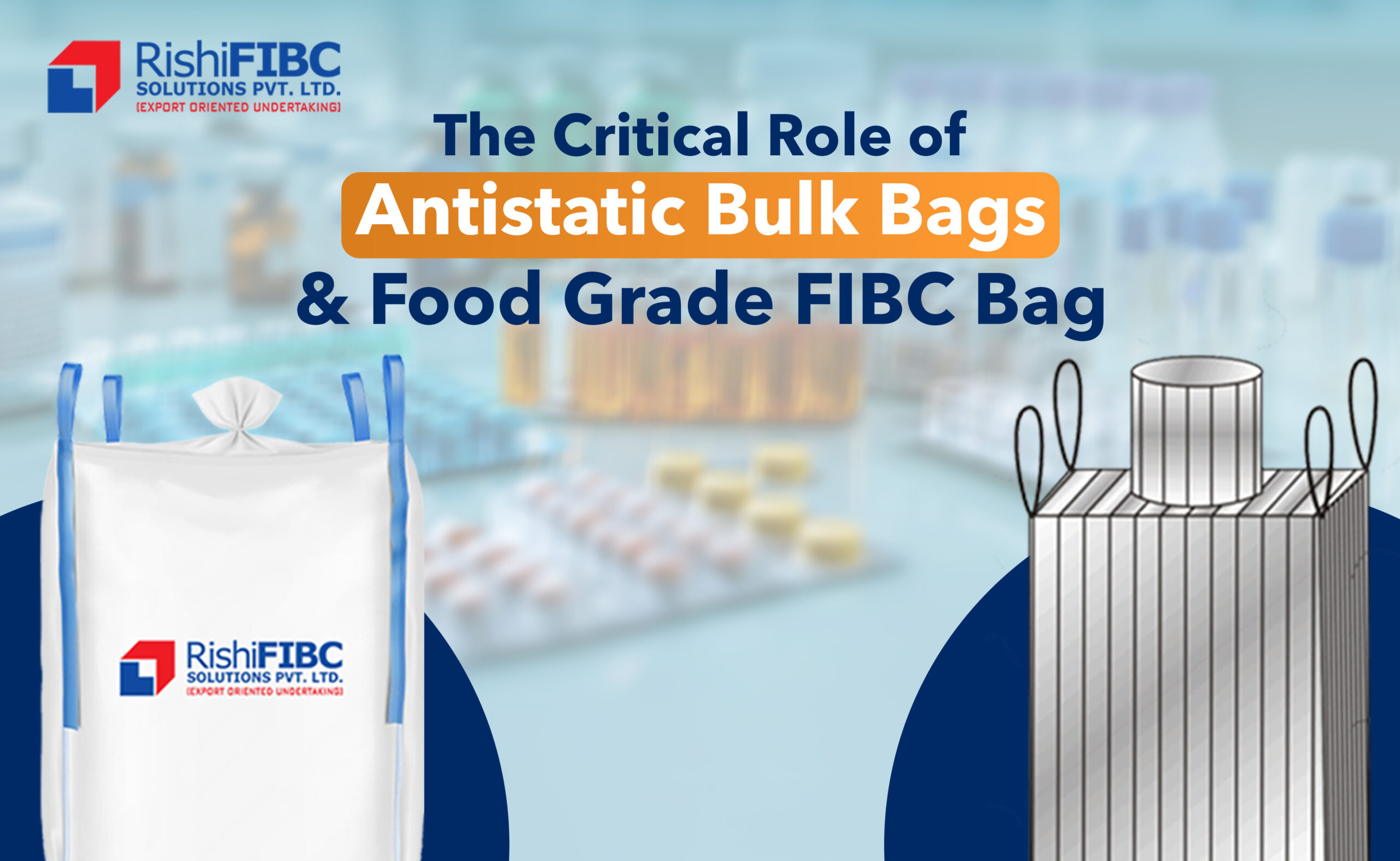Why Pharma Exporters Need Antistatic Bulk Bags and Food-Grade Packaging
The global pharmaceutical supply chain is a complex system. Pharmaceutical exporters face high stakes where product safety, quality, and efficacy are non-negotiable. Compromise is simply not an option. From Active Pharmaceutical Ingredients (APIs) to finished medical devices, these sensitive products must be shielded from various threats. A critical, yet often overlooked, component of this defence is the packaging itself. Exporters must comply with international regulations and prevent catastrophic risks, such as explosions. This is why specialised packaging, specifically antistatic bulk bag and food-grade solutions, is absolutely essential for safe storage, reliable transport, and efficient distribution. The right packaging ensures the medicine remains pure, potent, and safe for the patient.
The Critical Role of Antistatic Bulk Bag in Pharma Safety
Handling and transporting fine pharmaceutical powders, such as APIs, is inherently risky. Friction from moving powders can rapidly generate static electricity. This static charge poses two major threats: explosion risk and product integrity failure. Antistatic bulk bags are meticulously engineered to mitigate the risks associated with electrostatic discharge (ESD).
- Preventing Catastrophe: Safety in Hazardous Environments
Consider a facility where flammable substances or fine powders are present. Friction from bulk material movement can quickly build up a static charge. This static energy could easily ignite flammable vapors or dust clouds, causing explosions in production or handling areas. Antistatic bulk bags are designed to prevent the dangerous accumulation of static electricity. For environments where explosive atmospheres exist, specialized solutions like the Type D FIBC Bag are crucial. These bags are made with dissipative fabrics that safely neutralize and dissipate static charges into the surrounding air, requiring no grounding connection. This makes the dissipative FIBC bag an indispensable safeguard, ensuring the continuity of operations while guaranteeing high levels of protection. - Protecting Product and Process
Beyond safety, static electricity degrades product quality and operational efficiency. Electrostatic discharge can damage delicate electronic components found in advanced medical devices and diagnostic kits. Furthermore, static charges cause fine pharmaceutical powders to stick tenaciously to the inner walls of the bags. This material loss leads to weighing inaccuracies during manufacturing, which is unacceptable with expensive APIs. By using effective antistatic bulk bag, precise material transfer is ensured, boosting efficiency and cutting costs. Moreover, in producing oral medications like capsules, static can cause powder particles to clump. This negatively impacts the uniformity of the final drug blend, fundamentally compromising the medicine’s effectiveness.
Why Food-Grade Standards are Non-Negotiable for Pharmaceutical Packaging
Although pharmaceuticals are not classified as food, they must be packaged to stringent sanitary standards often exceeding those for food products, especially for products that are ingested, inhaled, or injected. The purity of the medicine is paramount.
- Ensuring Purity and Material Safety
Food-grade manufacturing environments are meticulously designed to prevent contamination from dust, bacteria, or other foreign particles. This controlled process ensures the pharmaceutical product remains absolutely pure and safe for human consumption. The packaging material itself must also be safe. Food-grade FIBC bags utilize only virgin, non-toxic materials. Harmful chemicals are explicitly excluded. This prevents chemical leaching, a critical issue where substances from the packaging could migrate into the medicine, altering its chemical composition and efficacy. The packaging must maintain its integrity.
- Compliance, Certifications, and Patient Safety
Rishi FIBC establishes pharmaceutical-grade packaging compliance through rigorous, globally recognized quality systems. Our commitment is substantiated by major certifications, including BRC Global Standards, AIB International, and ISO 9001:2015. These audited certifications prove that our manufacturing processes meet—and consistently exceed—the sanitary and quality assurance required for sensitive products.
Our quality assurance extends beyond documentation. Every FIBC is produced under strictly controlled, clean conditions to ensure the bag itself introduces no risk of contamination. We implement a fully documented traceability system, allowing every component of a bag to be tracked back to its source, providing crucial transparency and accountability. Furthermore, every finished bag undergoes meticulous inspection, including metal detection, to remove any foreign contaminants before shipment, guaranteeing the highest standard of purity and safety for your bulk packaging needs.
Choosing an Expert Jumbo Bag Manufacturer
The decision of who supplies your packaging is as important as the packaging itself. Your chosen Jumbo Bag Manufacturer must demonstrate deep expertise and compliance with both antistatic and food-grade regulations. Look for a partner with proven experience in pharmaceutical-grade packaging. Their processes must be certified. Their experience should reflect an understanding of dissipative technology like the Type D FIBC Bag and the rigorous requirements of a certified cleanroom environment for food-grade FIBC bag production. This level of diligence elevates packaging from a mere container to a proactive component of your quality control strategy.
Trust, Quality, and Compliance
The necessity of specialized bulk packaging for pharmaceutical exports is not overstated. Antistatic bulk bags prevent explosions and product degradation, while food-grade standards ensure absolute purity and regulatory compliance. These two requirements are the foundation of trustworthy, safe, and efficient global pharmaceutical transport. It is a decision that protects products, people, and profits.
Connect with Rishi FIBC today and explore how our Food Grade FIBC Bags and Antistatic Bulk Bag help in your bulk packaging needs
FAQ
Q1: Why are food-grade standards required for packaging pharmaceuticals, which are not food?
Food-grade manufacturing ensures the highest level of sanitation, preventing contamination from dust or bacteria. Crucially, these bags use only non-toxic, virgin materials, preventing chemical leaching into the medicine, which could alter its composition and harm patients.
Q2: Can manufacturers customize jumbo bags?
Absolutely. Indian firms offer tailored liners, coatings, lifts, and bag types suited to specific product and industry needs.
Q3: How does static electricity cause powder waste during filling?
Static charges cause fine powders to cling to the inner surfaces of the bag walls, leading to material retention. This results in product loss and weighing inaccuracies during the processing stage. Antistatic bulk bag material ensures the efficient and clean discharge of expensive APIs.






